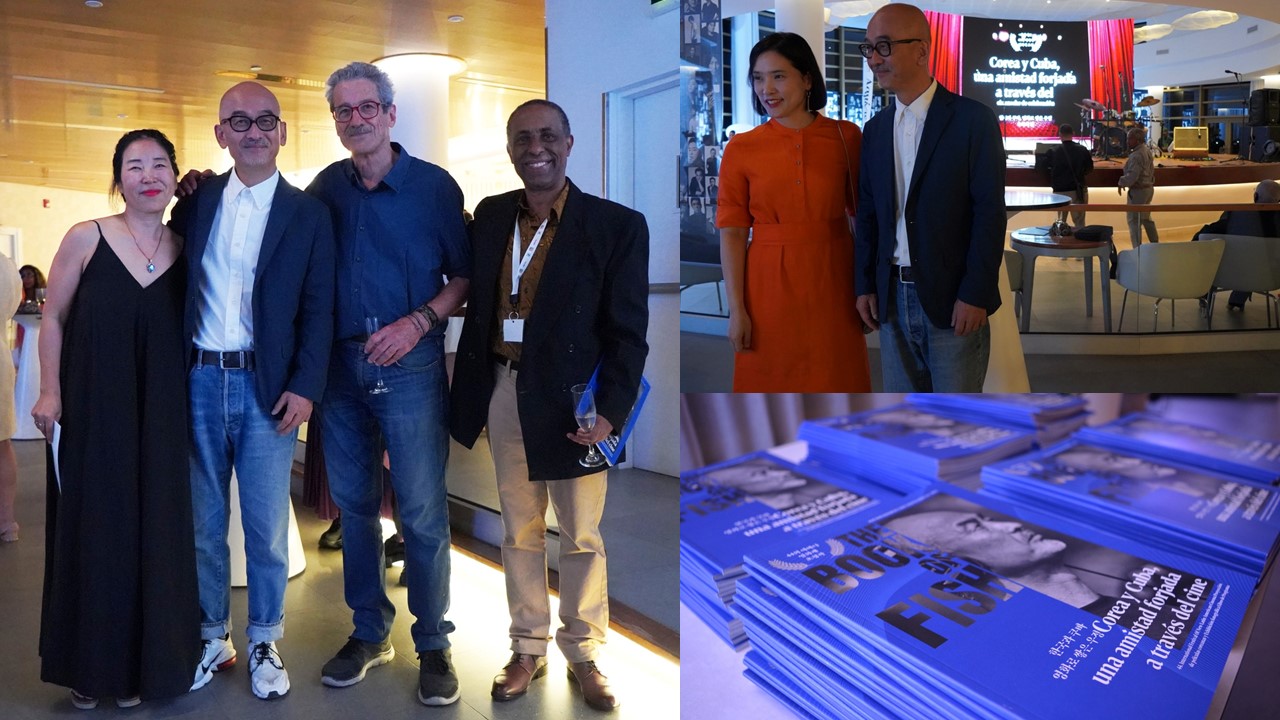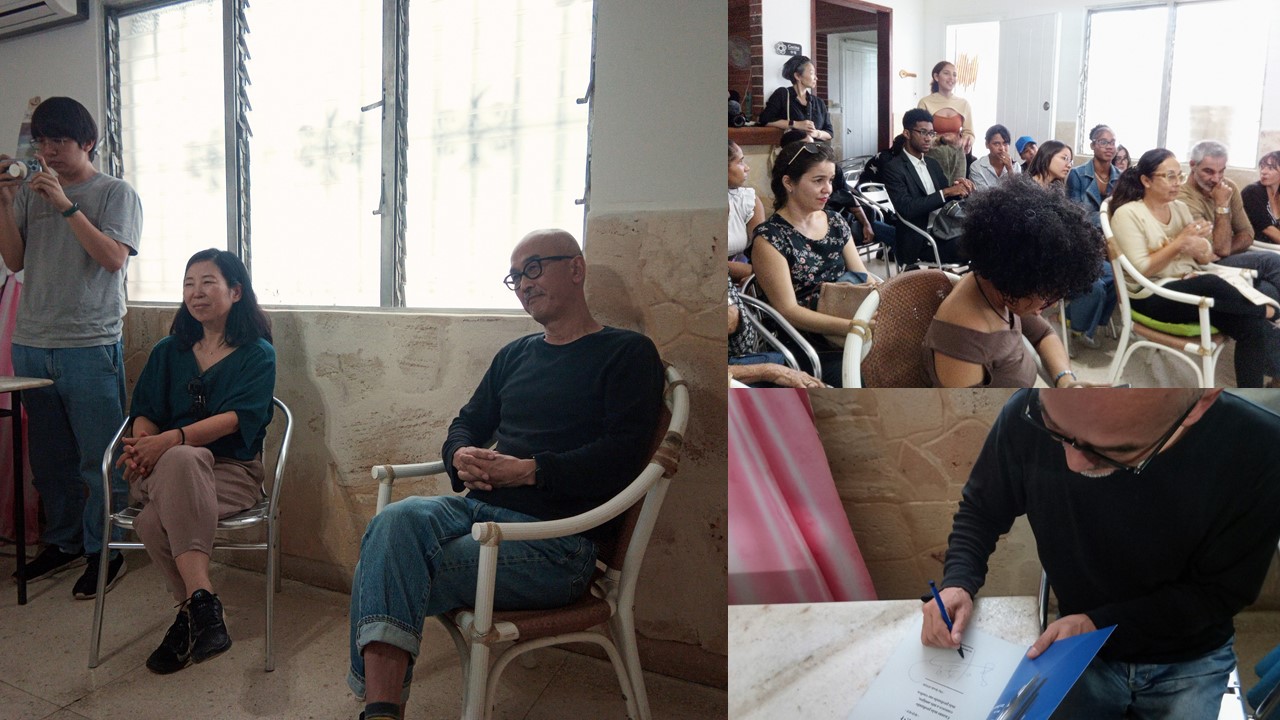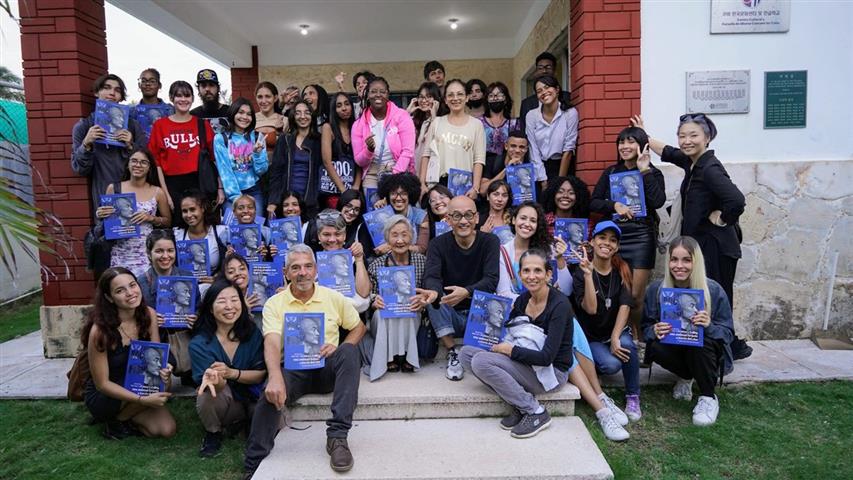- 한국어
- English
- 日本語
- 中文
- العربية
- Español
- Français
- Deutsch
- Pусский
- Tiếng Việt
- Indonesian
By Honorary Reporter Dayviana Diaz from Cuba
Photos = Dayviana Diaz
The 44th International Festival of New Latin American Cinema of Havana held from Dec. 8-17 in Havana, Cuba, screened "The Book of Fish," or "Jasaneobo" in Korean, a 2021 film by director Lee Joon-ik.
Due to surging global interest in Korean content like the Oscar-winning movie "Parasite" (2020) and hit Netflix series "Squid Game" (2021), the event sought to bring both countries closer together for cultural exchange.

The premiere in Cuba of "The Book of Fish" on Dec. 12 is held at the International Festival of New Latin American Cinema of Havana, attended by the film's director Lee Joon-ik (second from left in first photo and right in second).
Director Lee attends festival
As an official guest of the festival, director Lee produced blockbusters like "The King and the Clown" (2005) and is being recognized as Korea's master of period drama. His 14th and most recent film, "The Book of Fish," is a black-and-white portrait of Joseon Dynasty scholar Jeong Yak-jeon and his exile to Heuksando Island, where he meets a young fisherman and completes a book on fish.
In May 2021, the movie won the grand prize at Korea's Baeksang Arts Award and has enjoyed good reviews at major film festivals abroad this year.

Director Lee Joon-ik (right in first photo) on Dec. 15 holds a talk with members of the ethnic Korean community in Cuba, students at the Cultural Center and Korean Language School, and fans of Korean culture.
Q&A with Cuban public
While in Havana, Lee attended several events where he met the Cuban public, saying, "This opportunity has exceeded my imagination as I was very excited to meet the Cuban public in person." In addition to the premiere of his film, he held a talk at the Cultural Center and Korean Language School of Cuba.On his beginnings, he said he began marketing films through movie posters, adding that he talked with directors to understand how to promote the films through cinematic elements like visuals, message lines and typography. He said it helped him to focus on a message that could sum up a movie in one poster, adding that to make films, the most important thing for a filmmaker is not film school but to know what message to tell the public.

Director Lee Joon-ik takes a photo with Cubans at the Cultural Center and Korean Language School of Cuba.
Turning to Korea's relations with Cuba, he added, "I believe that if you truly want to, you can achieve greater bilateral exchanges through cinema, music, painting or other specialties that allows creation of exchanges and in which artists can be invited to show their art. Or you can visit Korea."
"I think the most important thing is to have a deep story to share so that Korea can also listen to it."
For those unable to attend the screening during the festival, the center in Havana will show select films by Lee to facilitate Cuban access to his filmography.
msjeon22@korea.kr
*This article is written by a Korea.net Honorary Reporter. Our group of Honorary Reporters are from all around the world, and they share with Korea.net their love and passion for all things Korean.